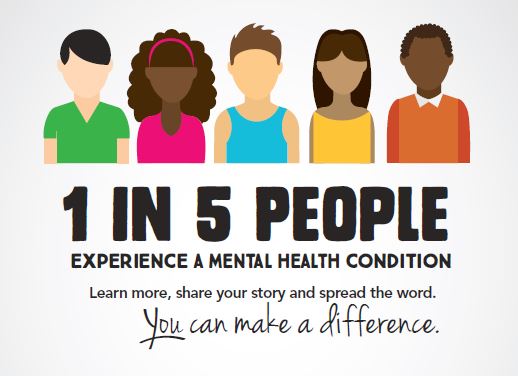July is National Minority Mental Health Awareness Month, and at the Diverse Elders Coalition, we’re working to shine a spotlight on the unique mental health needs of our elders of color, American Indian/Alaska Native elders, and LGBTQ elders.

Research by the Substance Abuse and Mental Health Services Administration (SAMHSA) shows that mental illness affects one in five American adults, yet nearly two-thirds of people with a diagnosable mental illness do not seek treatment. For American Indian/Alaska Native communities, as many as 28% of adults may be living with a mental illness; LGBTQ adults experience even higher rates of mental illness (40%). Additionally, diverse communities are even less likely to seek help: we may face poorer quality of care, higher levels of stigma, culturally insensitive healthcare, language barriers, and/or discrimination by providers, just to name a few. (For more, check out this infographic from the National Alliance on Mental Health.)
“Mental health” is an all-encompassing term that can mean anything from Alzheimer’s and dementia to depression and suicide. Recent data indicate that one in five adults aged 65 and older met criteria for a mental disorder. And while organizations like the Diverse Elders Coalition advocate for more culturally competent care, we still have a long way to go to ensure that our elders are receiving care that best meets their unique needs.

So, how can we best address the mental health issues facing our communities?
Earlier this week, we shared a blog from Jason Resendez about Alzheimer’s and dementia in communities of color. When we tell our stories, we help to bridge cultures, break down barriers, and shatter the stigma of being an LGBT person, a person of color, and/or an American Indian/Alaska Native living with mental illness. We encourage you to share your stories of mental health in your family or community in our Diverse Elders Stories Initiative.
Additionally, the Office of Minority Health website has some great resources for learning more about mental health, disparities faced by our diverse communities, and ways to stay connected with professionals and community all year round. The National Resource Center on LGBT Aging has LGBTQ-specific resources about mental health. And if you or a loved one are experiencing a mental health crisis, MentalHealth.gov has phone numbers and other resources that can lend a hand, any hour of the day.
Together, we can shatter the stigma of mental health in our communities and advocate for treatment that best meets our needs. For more, follow the #MMHAM hashtag on Twitter, or stay tuned to the Diverse Elders Coalition’s Facebook and Twitter pages all month long.
The opinions expressed in this article are those of the author and do not necessarily reflect those of the Diverse Elders Coalition.

